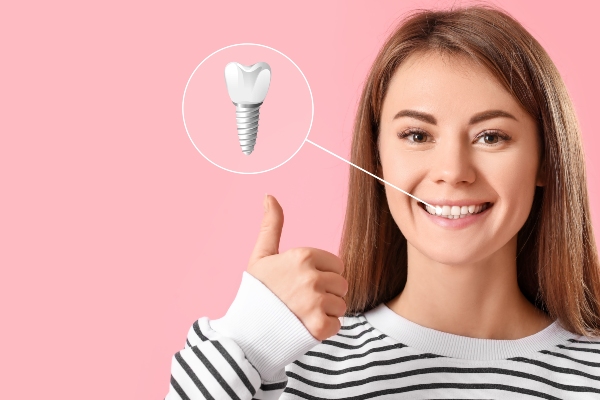 Peri-implantitis is a painful condition that affects the dental implant site. If left untreated, the consequences are irreversible, so it is important to maintain a checkup schedule with an implant dentist. However, an implant dentist can save your implants, gum tissue, and jawbone without much hassle if caught in its early stages. This article will review everything to know about peri-implantitis and how our implant dentist can treat it.
Peri-implantitis is a painful condition that affects the dental implant site. If left untreated, the consequences are irreversible, so it is important to maintain a checkup schedule with an implant dentist. However, an implant dentist can save your implants, gum tissue, and jawbone without much hassle if caught in its early stages. This article will review everything to know about peri-implantitis and how our implant dentist can treat it.
Understanding the Implant Dentist’s Treatment Options for Peri-Implantitis
What is Peri-Implantitis?
Peri-implantitis is an inflammatory condition affecting the dental implant’s soft tissue and can lead to failure. There are three stages of this peri-implantitis:
Early stage
This stage is often called peri-implant mucositis. In this stage, the gums around the implant become inflamed, leading to bleeding and swelling. Minimal to no pain may be associated with this stage and reversible with oral hygiene improvements and antibiotics.
Progressive stage
In this stage, the inflammation has progressed, but there is no attachment loss. However, the patient may experience pain and see bone loss around the implant.
Advanced stage
In this stage, there is severe inflammation in the gums and bone, severe pain, puss around the implant site, significant bone loss, and a loose implant. The result of this stage is implant failure.
Peri-implantitis can be a result of numerous factors, including:
- Poor oral hygiene
- Bacteria and plaque build-up
- Smoking
- Poor nutrition that lacks vitamins
- Diabetes
- Poorly fitted or placed implants or restorations
Some factors are more common than others, and if caught early enough, peri-implantitis is reversible with certain treatments.
Treatments for Peri-Implantitis
There are three treatment options an implant dentist will use for peri-implantitis: mechanical debridement, chlorhexidine mouthwashes, or implant removal with the help of antibiotics to clear away stubborn infections.
For the early stages of peri-implantitis, the implant dentist will likely recommend a mechanical debridement and educate the patient on better oral hygiene habits. Mechanical debridement, sometimes called root scaling and planing, is done under local anesthesia using a handpiece with a diamond bur to remove plaque, calculus, and bacteria causing inflammation from around the implant and the bone surface.
The implant dentist may prescribe a chlorhexidine mouthwash as part of the treatment plan for any stage. Chlorhexidine is an antiseptic and antibacterial agent that cleans wounds and can help prevent the spread of plaque and bacteria in the mouth.
The implant dentist removes the implant and cleans the site if the patient is in the final (advanced) stage of peri-implantitis. This process will allow the patient’s body to heal before reattempting to place a new implant. Though healing times vary, the healing process can take up to six months.
Seek prompt care today
Peri-implantitis is a serious condition that can become irreversible if not treated promptly. Patients experiencing peri-implantitis need to see an implant dentist at least every six months to prevent any problems that could affect their implants. If you are experiencing signs of peri-implantitis, contact us today. Our team will schedule the first available appointment with our implant dentist to save your implants.
Request an appointment or call North Coast Dental Implants & Cosmetics at 760-705-3407 for an appointment in our San Marcos office.
Related Posts
There are many types of dental professionals; however, you will need specialized care when it comes to dental implants. An implant dentist specializes in installing dental implants and treating conditions caused by or affecting them. Here is a list of conditions requiring an implant dentist’s care.Dental implants are a great solution for missing teeth. They…
Our implant dentist is here to guide you through the process of getting dental implants, from your initial consultation to the surgical installation of your implant. Understanding how the process works allows you to ask the right questions during your appointment.An implant dentist spends a large fraction of their time placing implants. Implants are screws/rods…
There are many different types of dental specialists, but if you are looking for one that can help you with missing teeth, then what you need is an implant dentist. This particular type of dentist specializes in the installation of dental implants for missing teeth. Figuring out whether or not dental implants are right for…
